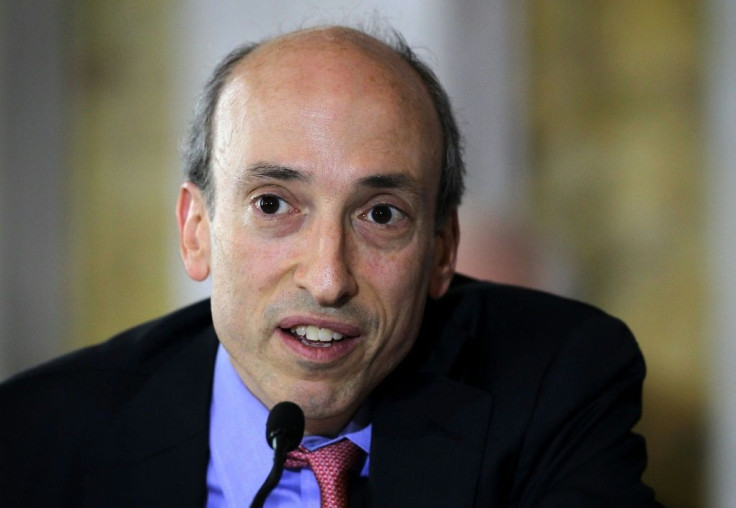US Stocks Regulator To 'Freshen' Rules To Ensure Orderly Markets
US officials are examining ways to update trading rules, including how assets are priced, to ensure they keep up with current technology, a top securities regulator said Wednesday.
The Securities and Exchange Commission (SEC) is undertaking a broad review of equity markets to ensure transparency and protect individual investors amid the rise of Robinhood and other disruptors, said SEC Chair Gary Gensler.
"I believe it's appropriate to look at ways to freshen up the SEC's rules to ensure that our equity markets reflect our mission: to maintain fair, orderly, and efficient markets, while ensuring we protect investors and facilitate capital formation," Gensler said.
He made the comments during the Piper Sandler Global Exchange and Fintech Conference, which was closed to the public.
"The question is whether our equity markets are as efficient as they could be, in light of the technological changes and recent developments," Gensler added.
The SEC chair referenced the growing use of trading apps, including Robinhood, which retail investors organized over social media have used to drive stunning price increases for companies like GameStop.
Robinhood has been credited with introducing a generation of new individual investors to the stock market, but the platform is also known for features that critics say can make it addictive.
In his speech, Gensler hit out at "gamififcation" and other "behavioral prompts" that can lead people to trade more, a dynamic that some studies say can lead to lower returns for the average investor.

In his speech and in an interview with CNBC, Gensler also disputed Robinhood's characterization of its trades as cost free to investors.
"I think that's a misperception: it's not free trade, somebody is paying for your and my order flows," Gensler said on CNBC. "Secondly, they're getting our data, the data is very valuable. So it is zero commission, but not necessarily free."
Gensler, in the speech, referenced an SEC enforcement action in December against Robinhood that accused it of maintaining higher costs for traders in exchange for receiving payments from other firms to execute trades.
Most trades are executed by wholesalers which have a price advantage compared to exchanges like Nasdaq or the New York Stock Exchange, he said.
Traditional exchanges handle only about 53 percent of trading volume, while wholesalers manage over a third, with a single firm claiming to handle half of all retail volume, Gensler said.
That concentration gives some players an advantage over others, and results in a worse deal for investors.
Robinhood paid a $65 million penalty to settle charges without admitting or denying the SEC's allegations.
"I've asked staff to make recommendations for the commission's consideration on best execution" of rule changes including for on-exchange and off-exchange trading, and minimum pricing increments, Gensler said.
The goal is "to make our markets as efficient as possible," he said.
© Copyright AFP 2024. All rights reserved.




















